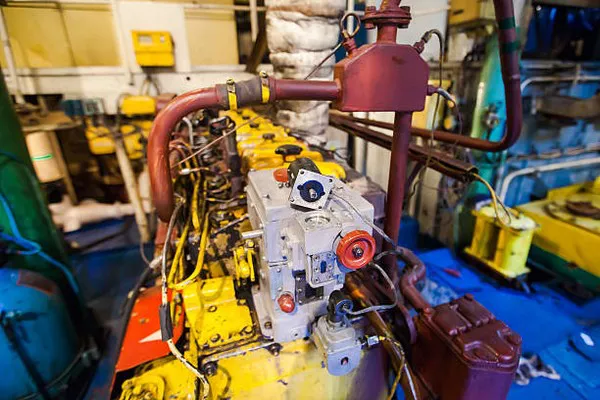In today’s world, electricity has become an integral part of our daily lives, powering our homes, appliances, and devices. However, power outages are inevitable, and they can be caused by various factors such as extreme weather conditions, infrastructure issues, or accidents. To ensure uninterrupted power supply and protect your home from disruptions, many homeowners are turning to whole-home generators. In this article, we will delve into the costs associated with installing a whole-home generator and explore the factors that can influence the final price.
The Importance of a Whole Home Generator
Before we delve into the costs, it’s essential to understand why investing in a whole-home generator is beneficial. These generators are designed to automatically provide backup power to your entire home in the event of a power outage. Unlike portable generators, which provide limited power to a few appliances, whole-home generators offer a seamless and convenient solution, maintaining power to essential systems like heating, cooling, refrigeration, and security.
Factors Influencing the Cost of a Whole-Home Generator
Generator Size and Capacity:
The most significant factor impacting the cost of a whole-home generator is its size and capacity. Larger generators with higher wattage capabilities will cost more than smaller ones. The generator’s capacity should be determined based on your specific needs and the size of your home. An expert assessment can help you choose the right generator size.
Fuel Type:
Whole-home generators can run on various fuel types, including natural gas, propane, and diesel. The choice of fuel can affect the installation cost. Natural gas generators, for instance, tend to have lower installation costs as they can connect directly to your home’s existing gas line.
Installation Complexity:
The complexity of the installation process plays a crucial role in determining the final cost. Factors such as the location of the generator, the need for excavation or special permits, and the extent of electrical work required can all impact the installation cost. A more complex installation may require additional labor and materials.
Brand and Quality:
The brand and quality of the generator itself can also influence the cost. Established brands with a reputation for reliability often come with a higher price tag. While it may be tempting to opt for a lower-cost generator, investing in a reputable brand can provide long-term reliability and peace of mind.
Accessories and Additional Features:
Generators can be equipped with various accessories and features to enhance their functionality. Automatic transfer switches, remote monitoring capabilities, and advanced control panels are examples of such features. While they can add convenience, they also come with additional costs.
Maintenance and Warranty:
Maintenance and warranty packages are essential considerations. Some generators may require regular maintenance, which can add to the overall cost of ownership. However, a comprehensive warranty can provide protection and save you money on potential repairs.
Understanding the Costs
On average, the cost of a whole-home generator installation in the United States can range from $5,000 to $15,000 or more. However, it’s important to note that this is a broad estimate, and actual costs can vary significantly based on the factors mentioned above. Let’s break down these costs further:
Generator Unit: The generator unit itself can range from $3,000 for a smaller, basic model to $15,000 or more for a larger, high-capacity unit with advanced features. The choice of fuel type will also impact this cost.
Installation: The installation cost includes labor, electrical work, fuel line installation, and any necessary permits. It can vary widely based on the complexity of the installation, location, and local labor rates. On average, installation costs can range from $2,000 to $8,000 or more.
Accessories and Features: Additional features and accessories can add anywhere from a few hundred dollars to a couple of thousand dollars to the total cost, depending on your preferences.
Maintenance: Regular maintenance costs can range from $200 to $1,000 per year, depending on the generator’s size and type.
Warranty: Warranty packages may add to the upfront cost, but they provide peace of mind and can save you money on potential repairs down the road.
It’s crucial to obtain multiple quotes from reputable generator installation companies to get an accurate estimate tailored to your specific requirements and location.
Additional Considerations
Return on Investment (ROI): While a whole-home generator represents a significant upfront investment, it can add value to your home and provide peace of mind during power outages. Consider the long-term benefits and potential ROI when evaluating the cost.
Financing Options: Some manufacturers and installation companies offer financing options to help homeowners spread the cost over time. Explore these options to make the investment more manageable.
Maintenance Plans: Many companies offer maintenance plans to keep your generator in optimal condition. While these plans come with ongoing costs, they can extend the lifespan of your generator and prevent costly repairs.
Conclusion
A whole-home generator is a valuable investment in your home’s comfort, safety, and convenience. While the upfront costs can vary significantly based on factors like generator size, fuel type, and installation complexity, it’s essential to view this investment as a long-term solution to power outages. By carefully considering your needs, obtaining multiple quotes, and evaluating financing options, you can make an informed decision about installing a whole-home generator that fits your budget and provides reliable backup power for years to come.

